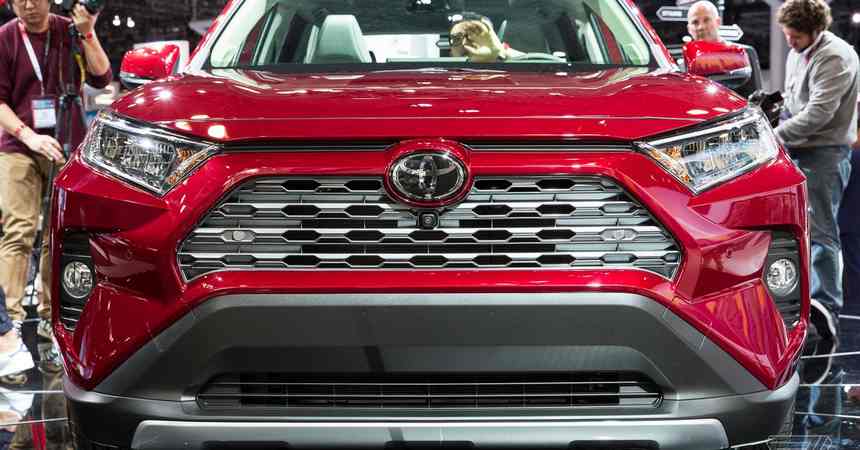The US is slowing moving toward adopting policies that would put more electric vehicles on the road, but for Toyota, it’s not slow enough. The Japanese automaker, which is the largest car company in the world, has been quietly lobbying policymakers in Washington, DC to resist the urge to transition to an all-electric future — partly because Toyota is lagging behind the rest of industry in making that transition itself.
According to The New York Times, a top Toyota executive has met with congressional leaders behind closed doors in recent weeks to advocate against the Biden administration’s plans to spend billions of dollars to incentivize the shift to EVs. The executive, Chris Reynolds, has argued that hybrids, like the Toyota Prius, as well as hydrogen-powered fuel cell vehicles should also be in the mix.
Toyota is lagging behind the rest of industry in making that transition
In addition, Toyota is also pushing back against EV-friendly policy through the auto industry’s main DC-based lobbying group, the Alliance for Automotive Innovation. The group, which represents the major car companies and their suppliers and is chaired by Reynolds, has been arguing against the Biden administration’s plan to adopt the so-called California compromise as its official position, the Times reports.
Last year, a group of car companies made a deal on tailpipe emissions with California, which had been seeking to set tougher rules than the US as a whole. Under President Donald Trump, the Environmental Protection Agency had sought to strip California of its power to set its own emissions standards. But under Biden, that rule was reversed, allowing California and other states to impose tougher standards.
Toyota, which sided with the Trump administration in its battle with California, was not part of the original compromise. And the company has argued against EV-friendly policies in India and in its native country, Japan, as well.
Toyota’s behind-the-scene efforts to slow the momentum behind EV-friendly policies is surprising, given its status as an early adopter of battery-powered transportation. With the release of the Toyota Prius in 1997, the company helped pave the way for Tesla and others by proving that vehicles with alternative powertrains could be immensely popular. And more recently, the automaker has revealed plans to release 70 new models by 2025, including battery-electric, hydrogen fuel cell, and gas-electric hybrids.
But that doesn’t hide the fact that Toyota has fallen far behind its competitors, appearing content to rest on its laurels while the rest of the industry has lapped it several times. Companies like Nissan, General Motors, and Volkswagen have been selling pure battery-electric vehicles for years, while also revealing their plans to phase out gas cars completely. And Toyota’s failure to embrace EVs is not a new concept; The New York Times noted as much in this article from 2009.
Toyota’s top executives, including billionaire CEO Akio Toyoda, have been on the record calling the trend toward electric vehicles “overhyped”
Toyota’s top executives, including billionaire CEO Akio Toyoda, have been on the record calling the trend toward electric vehicles “overhyped” in part because of emissions associated with power plants — which is a favorite talking point used by the oil and gas industry.
The company came under fire recently after it was revealed that it was the largest corporate donor to Republican lawmakers who objected to the certification of the 2020 presidential election. A majority of those politicians also dispute the scientific consensus on climate change. Toyota initially defended the contributions, but then later said it would halt them. You know things are bad for the company when a Toyota spokesperson has to confirm to the Times that the automaker does indeed believe that climate change is real.
Toyota’s argument that hybrids and fuel-cell vehicles should also be included in the conversation is not a bad one. Hybrid vehicles in particular are an important stepping stone to the wider adoption of EVs, especially as the charging infrastructure is still in its infancy.
But that argument might carry more weight if the automaker’s track record on fuel economy was actually, well, good. According to the EPA, Toyota has slipped in its ranking in fuel efficiency across its entire fleet, going from an industry leader to near the bottom with GM and Ford. This comes as the company has pushed the sale of huge gas-guzzling trucks and SUVs, which tend to command a larger profit than smaller sedans and hatchbacks.

